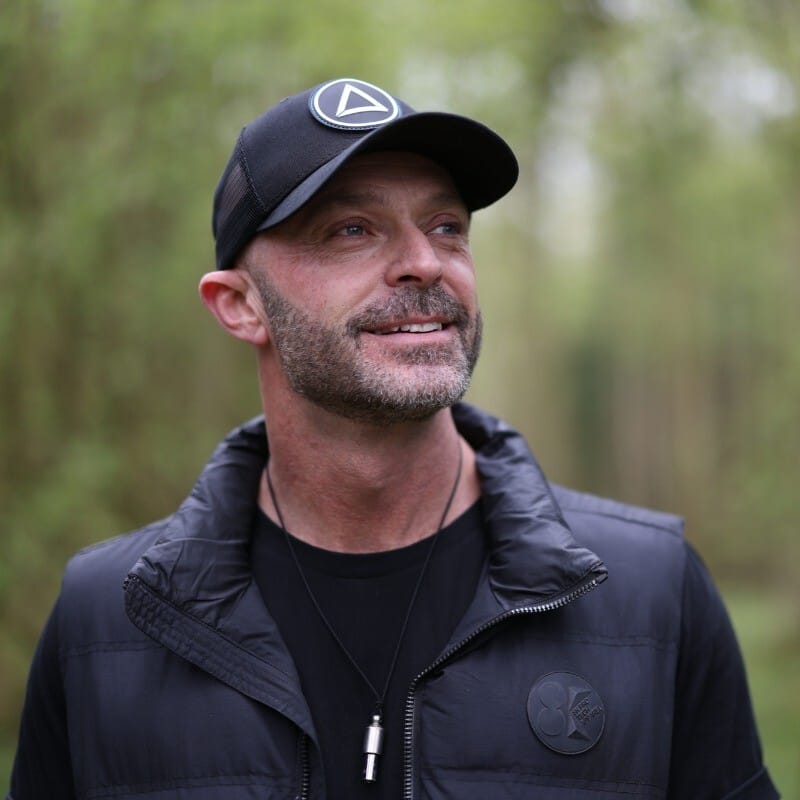When 3 of the most successful entrepreneurs sit down together, you know the conversation is going to be packed with actionable gold…
Alex Hormozi (sold companies for $46.2M), Codie Sanchez (Main Street acquisition expert), and Daniel Priestley (serial entrepreneur and author) recently gathered for an epic roundtable interview on the Diary of a CEO podcast. The conversation delivered powerful insights every serious business builder needs to hear NOW.
Here are the 10 biggest takeaways that could transform your entrepreneurial journey:
1. Master the 70/20/10 Focus Rule
Alex revealed a clear framework for focus that prevents scattered efforts while pursuing deals:
70% of your time goes to core revenue-generating activities (your primary deal-sourcing strategy)
20% of your time goes to your next big opportunity (secondary strategies with potential)
10% of your time is for experimentation (testing new approaches without pressure)
Most entrepreneurs try to do everything at once and end up with mediocre results across the board…
That’s why Alex suggests using this exact framework to scale multiple businesses without losing focus or burning out.
Action step: Block your calendar right now using this 70/20/10 split. Be ruthless about protecting your 70% time.
2. Use the M.O.A.T. Strategy to Evaluate Any Business Idea
Daniel shared the framework private equity firms use to determine if a business is actually investable.
Before you pursue any opportunity, score it on these 4 criteria (each through 1-10):
Margin: Does it have at least 15% net profit margin?
Operations: Can it scale without you personally doing everything?
Advantage: Do you have an unfair competitive advantage?
TAM (Total Addressable Market): Is the market big enough for your goals?
The scoring system:
30+ points = Fund it (great opportunity)
20-30 points = Fix it (address the problems first)
Under 20 = Flee it (not worth pursuing)
This simple framework could save you years of chasing the wrong opportunities.
3. Build for the Affluent 9%, Not the Price-Shopping 90%
Codie dropped a pricing psychology bomb that most entrepreneurs get completely wrong. The customer distribution breaks down like this:
Top 1% shop on pedigree (want the most established providers)
Next 9% shop on passion (will pay premium for compelling stories and expertise)
Bottom 90% shop purely on price
The sweet spot? Target that affluent 9%.
They have money to spend, they're interested in quality solutions, and they're much easier to convert than trying to win a price war with the bottom 90%.
Real example: A home inspection company added "luxury" to their name and raised prices 45% overnight. Same service with different positioning delivered dramatically better margins.
4. Authenticity = No Risk of Punishment
Alex provided the most practical definition of authenticity I've ever heard: "How you act when you have no risk of punishment."
The closer your public persona matches your private behavior, the more authentic you are. This builds trust faster than any marketing tactic because people can sense when someone is genuinely themselves versus playing a role.
Why this matters: As you build wealth and influence, you gain more freedom to be authentic because you have less risk of punishment. This creates a positive feedback loop where success enables more authenticity, which drives more success.
5. The Assessment Close Beats Every Sales Technique
Instead of pitching your solution directly, pitch the assessment that determines if you can help. Alex calls this the most powerful sales closer he knows.
The framework: "I don't know if I can help you, but if we go through these questions/this assessment, we'll figure out whether we're a fit or not."
This works because friction upon entry makes people value the outcome more. Think about exclusive clubs or luxury brands - the harder they are to get into, the more people want them.
Psychological principle: When people have to work to get something, they automatically assign it higher value.
6. The 4 Pillars of Influence (SPCL)
Alex broke down exactly what creates influence and buying intent:
Status: Controlling scarce resources
Power: Say-do correspondence (when you give instructions that lead to good outcomes)
Credibility: Having proof of your results
Likeness: Being similar to your audience (values, background, appearance)
Martha Stewart example: She gave recipes (instructions), people followed them and got praised for great food (good outcomes), so when she sold kitchen products, people bought because they trusted her guidance.
Most content creators focus only on views, but influence requires building these four pillars systematically.
7. Proof Always Beats Promise
Before you try to sell anything to anyone, get 5-10 clients for free with the sole purpose of generating testimonials and case studies. Alex recommends this because you'll make more money from the proof than you would charging initially when you have no credibility.
Why this works: People believe what they see over what they hear. Showing previous results is infinitely more powerful than explaining what you can do.
Implementation: Create a simple portfolio of "show don't tell" assets like photos, videos, testimonials, or before/after comparisons. Always consider showing something visual to help close sales.
8. The Midas Touch for Raising Money
Codie shared her framework for raising capital. You need 1 of these 4 elements (you don't need all of them):
Profit: A business that's already making money
Growth: Demonstrable upward trajectory
History: Track record of previous success
Story: Compelling vision of the future
Most entrepreneurs start with only story, which is fine, but as you progress, you accumulate the others & make future fundraising increasingly easier.
9. The Hidden Game: Financial Engineering
The most undervalued skill in entrepreneurship isn't marketing or sales - it's understanding how to use other people's money (OPM) to grow faster.
Codie's observation: Every billionaire on the Forbes list got there through financial arbitrage in some form. They understand leverage, debt structuring, and how to use today's assets to buy tomorrow's opportunities.
Master your P&L statement, understand business financing options, and learn how successful people structure deals. This knowledge compounds faster than almost any other business skill.
10. Distribution is Still Wildly Undervalued
All 3 agreed that building an audience you own remains the most undervalued asset in business. The math is simple: when you have distribution, every deal offer significantly favors you because the other party can't replicate your reach.
If you can reach 1 million people and someone else can reach 1,000, you have 1,000x more negotiating power in any partnership or deal.
This is why all 3 entrepreneurs invest heavily in content creation despite having successful businesses - Distribution amplifies everything else they do.
The Bottom Line
These battle-tested concepts come from 3 of the world’s leading entrepreneurs who've built and sold multiple companies.
The common thread?
They all focus on systems and leverage - not “grinding harder.”
Your next step:
We don’t suggest trying to apply all 10 insights at once… Instead, pick 1 from the list and implement it this week.
The difference between entrepreneurs who build wealth and those who stay stuck isn't intelligence or luck - it's applying proven frameworks consistently over time.
These 10 insights give you the frameworks…
Now it's time to start putting them to work.
Thanks for reading Acquiring & Exiting.
Acquiring & Exiting is brought to you by the same team behind the:


Ross Tomkins has nearly 20 years of entrepreneurial experience - which includes 16 acquisitions, 4 exits, and 6 businesses scaled over $1M. He invests in, mentors, and advises business owners aiming to scale to 7 or 8 figures.
Find out more here.

Michael McGovern is an investor, business advisor, and direct-response marketing pro from California. His company - Relentless Growth Group - invests in, helps grow, and acquires American businesses in multiple sectors. Get in touch via his email newsletter: The Wildman Path.

Len Wright has 35+ years in entrepreneurship, specializing in bolt-on acquisitions, M&A, and business growth. He has founded, scaled, and exited 4+ ventures, and is the founder of Acquisition Aficionado Magazine - connecting a vast network of experts in buying, scaling, and selling businesses through strategic alliances.
New subscribers can download the current issue free here.

